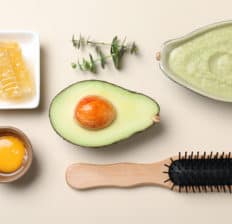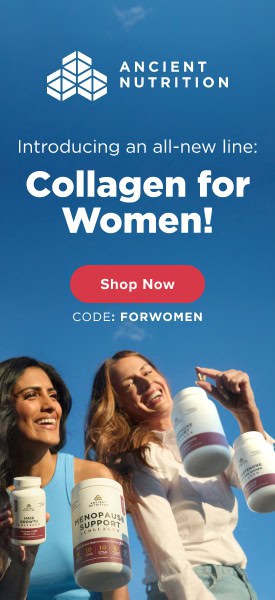This Dr. Axe content is medically reviewed or fact checked to ensure factually accurate information.
With strict editorial sourcing guidelines, we only link to academic research institutions, reputable media sites and, when research is available, medically peer-reviewed studies. Note that the numbers in parentheses (1, 2, etc.) are clickable links to these studies.
The information in our articles is NOT intended to replace a one-on-one relationship with a qualified health care professional and is not intended as medical advice.
This article is based on scientific evidence, written by experts and fact checked by our trained editorial staff. Note that the numbers in parentheses (1, 2, etc.) are clickable links to medically peer-reviewed studies.
Our team includes licensed nutritionists and dietitians, certified health education specialists, as well as certified strength and conditioning specialists, personal trainers and corrective exercise specialists. Our team aims to be not only thorough with its research, but also objective and unbiased.
The information in our articles is NOT intended to replace a one-on-one relationship with a qualified health care professional and is not intended as medical advice.
DIY Hair Mask for Damaged Hair
March 25, 2022

Who needs a hair mask? Well, it’s great for just about anyone, but can definitely offer hair health benefits for anyone who spends a lot of time in the sun, pool or adds color or other chemical products to their hair.
For example, if you color your hair at the salon or at home, giving your hair and scalp a good mask treatment on a regular basis can help take care of those unruly strands. (Just like certain vitamins boost hair health.)
You may be thinking that your daily conditioner can do just as well, but because the conditioner just sits on the surface of the hair briefly, it can’t get to the cuticle, which is where the benefits occur. And if you are concerned about existing split ends, a hair mask treatment can make a difference. A haircut is part of the solution, but regular treatment can help those split ends retain moisture and be less noticeable.
What Is a Hair Mask?
First, let’s be clear that it isn’t something you wear on your head. But it is something you put on your hair, and it can help you have the locks you’ve longed for. A hair mask is a mixture of hair friendly ingredients that you apply to your hair and allow to remain for period of time before washing out, all in an effort to improve the health of your hair.
A hair mask application is an easy and simple way to improve shine and manageability while providing nourishment to the cuticle, and it can be done right at home.
Common Hair Damage
To better understand, let’s learn a little bit about hair. Hair is a structured network consisting of the cuticle, cortex and medulla. The medulla is usually found in coarser hair like grey hair, thick hair and beard hair, and may have a lot to do with split ends.
The cuticle contains overlapping scales known as keratinocytes. Some people have thicker layers of cuticles, whereas others have thinner layers. Those with thinner layers are more prone to breakage.
You have probably heard about hair having protein. It is true. Beneath the membranes of the cuticle cells are three layers that contain proteins, some of which are responsible for the absorption of water and the hair’s ability to repair damage formed by such chemicals as hair color products.
The cortex contains the mass of the human hair and is comprised of protein and melanin as well as a matrix of fibrous structures called macrofibrils. When hair goes through different processes from cosmetic dyes, to perms and even hair straightening, it affects the strength of the hair and its ability to stay healthy. These products and processes can cause major damage such as split ends or cracks to the cuticle. And keep in mind that most shampoos out there contain a ton of chemicals too.
It’s clear that excessive and repeated chemical treatments, poor grooming habits such as using shampoos and conditioners with chemical-laden ingredients, environmental exposure, and even poor management of hair ties and brushing techniques can produce changes in hair texture that cause that frustrating hair breakage, tangling and frizzing.
Consider this a DIY hair mask for damaged hair but also for any type of hair.
How to Make a DIY Hair Mask
To make this DIY hair mask, it is easiest if you use a blender, though you can use a bowl and whisk. Let’s start by placing the hair-benefitting coconut oil and avocado in the blender. For curly hair, you may want to try the olive oil per the ingredients list above.
If you are using the whisk method, you will need to soften the coconut oil first by slightly heating it. Coconut oil has long claimed reign as the king of oils for just about everything from whitening your teeth to zapping those zits, but it’s also the perfect ingredient for a hair mask. Coconut oil works because it’s high in fatty acids, which provide much needed nourishment and moisturizing for the scalp and hair. Studies have shown that coconut oil reduces hair breakage, possibly because it penetrates the hair follicle.
For the curly headed, olive oil is an emollient that can penetrate the hair. Olive oil is great for curly hair because it is naturally lightweight, allowing it to provide moisturizing without weighing down curls.
Avocado has long been used for improving the condition of the hair by moisturizing — and why this hair mask works well for dry hair. The avocado is known as one of the most nutrition-packed foods on the planet, and it can benefit hair health. Avocados contain a fair amount of vitamins B and E, which can help protect and strengthen hair deep down to the cellular level.
Now that you have blended the oils and avocado, add the egg and honey for the DIY hair mask. Eggs are probably no surprise since they have been used to promote healthy hair since the 1940s, but what makes them so great? Eggs are jam-packed with lecithin and protein, two attributes that can help strengthen and moisturize your hair. And because egg yolks are great at binding all of the ingredients, it helps provide an evenly applied mask.
A bonus is the sulfur they contain, which may help reduce dandruff. And, of course, honey can add to the emulsifying feature that the eggs provide, but it goes well beyond that. Raw honey is a humectant attracting moisture from the air. It’s antibacterial, containing lots of antioxidants, which leads to healthy scalp and hair all while sealing moisture and adding shine.
Now that you have blended all ingredients, let’s add the last ingredients for your DIY hair mask: rosemary and lavender essential oils. Rosemary oil may assist in hair growth due to how it promotes cell division while dilating blood vessels. This action stimulates hair follicles that encourage new hair growth. Additionally, studies have shown an increase in healing of the scalp due to microcirculation.
Lavender essential oil is great for hair, and like rosemary, may even help with hair growth, as indicated in an animal study.
Once you have combined all ingredients into your blender, blend again making sure they are well combined. To apply, dampen your hair, then apply the mask evenly throughout, making sure to cover all of the hair, especially the ends.
Once you have applied it, cover the hair with a shower cap or towels so that you do not get it on your clothes. If you have long hair, tie it up first, then cover it. Allow the mask sit for 45 minutes to an hour. Wash out the mask with a natural shampoo and conditioner. For best results, try applying this mask once a week.
Precautions
Most have no problem using any of these ingredients; however, if you notice any irritation, stop using immediately. One or more ingredients could cause an allergic reaction. Also, be careful avoid getting the mixture in your eyes. Make sure your essential oils are 100 percent certified organic for best results.
Print
DIY Hair Mask Recipe
- Total Time: 10 min
- Yield: 1 application 1x
Description
To make this DIY hair mask, it is easiest if you use a blender, though you can use a bowl and whisk. You start by placing the coconut oil and avocado in the blender. For curly hair, you may want to try the olive oil per the ingredients list above.
Ingredients
- 2 tablespoons coconut oil (for curly hair: 1 tablespoon olive oil and 1 tablespoon coconut oil)
- ½ ripe avocado
- 1 egg
- 1 tablespoon raw honey
- 5 drops rosemary essential oil
- 5 drops lavender essential oil
Instructions
- Place coconut oil and avocado in the blender. (For curly hair, you may want to try the olive oil per the ingredients list above.)
- If you are using the whisk method, you will need to soften the coconut oil first by slightly heating it.
- Add the egg and honey and blend.
- Add the rosemary and lavender oils and blend.
- To apply, dampen your hair, then apply the mask evenly throughout, making sure to cover all of the hair, especially the ends.
- Once you have applied it, cover the hair with a shower cap or towels so that you do not get it on your clothes. (If you have long hair, tie it up first, then cover it.)
- Allow the mask sit for 45 minutes to an hour.
- Wash out the mask with all-natural shampoo and conditioner.
- For best results, try applying this mask once a week.
Notes
Double the recipe if you have very long hair.



